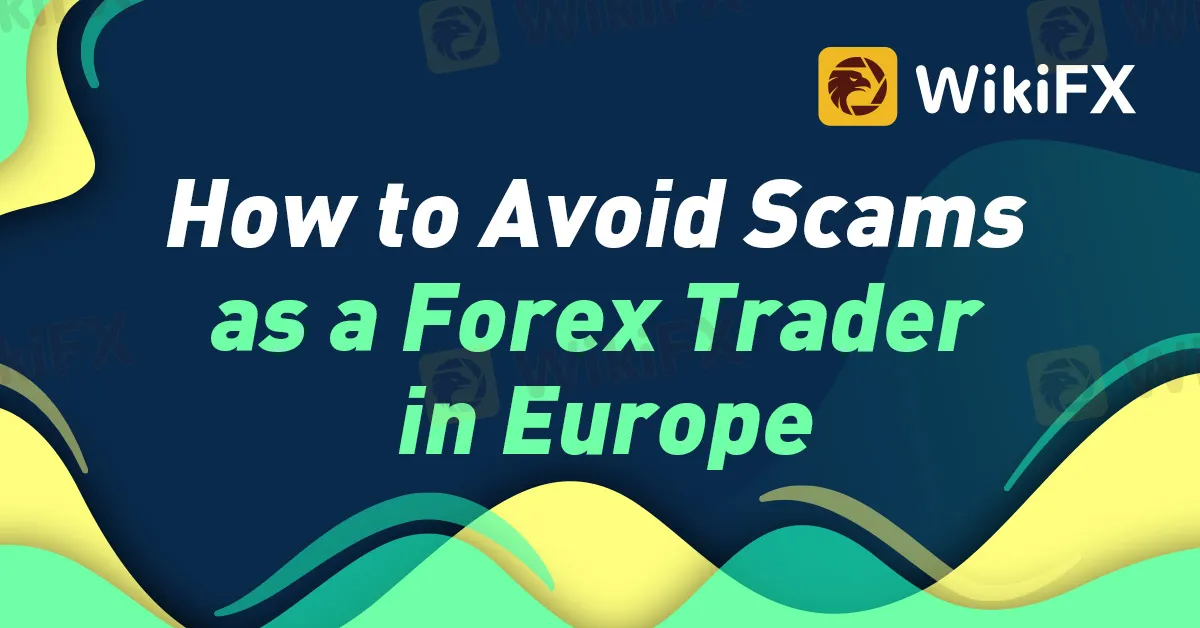简体中文
繁體中文
English
Pусский
日本語
ภาษาไทย
Tiếng Việt
Bahasa Indonesia
Español
हिन्दी
Filippiiniläinen
Français
Deutsch
Português
Türkçe
한국어
العربية
How to Avoid Scams as a Forex Trader in Europe
Abstract:Forex trading in Europe offers lucrative opportunities, but it also attracts unscrupulous individuals seeking to scam unsuspecting traders. Protecting yourself from scams requires vigilance and knowledge of common warning signs. Here are some tips to help you avoid scams as a forex trader in Europe.

Forex trading in Europe offers lucrative opportunities, but it also attracts unscrupulous individuals seeking to scam unsuspecting traders. Protecting yourself from scams requires vigilance and knowledge of common warning signs. Here are some tips to help you avoid scams as a forex trader in Europe.
Choose Regulated Brokers: Trade with brokers regulated by reputable authorities such as the FCA, CySEC, or other EU regulatory bodies. Regulation ensures that brokers adhere to strict standards and offers a level of investor protection.
Research the Broker: Conduct thorough research on any broker you consider using. Check their reputation, reviews, and customer feedback. Platforms like WikiFX provide valuable insights and user reviews to help you assess a broker's credibility.
Beware of Unrealistic Promises: Be cautious of brokers or trading programs that promise guaranteed profits or high returns with minimal risk. Forex trading involves risks, and no legitimate broker or program can guarantee consistent profits.
Avoid Unregistered Brokers: Verify the broker's registration and licensing. Unregistered brokers are more likely to engage in fraudulent activities and may not have the necessary regulatory oversight.
Check Terms and Conditions: Carefully read and understand the broker's terms and conditions, including fees, withdrawal policies, and trading conditions. Be wary of brokers with hidden fees or unfair practices.
Don't Share Personal Information: Be cautious when sharing personal or financial information online. Legitimate brokers will never ask for sensitive information via email or unsolicited phone calls.
Educate Yourself: Enhance your knowledge of forex trading to identify potential scams. Understand common trading scams, such as Ponzi schemes, signal services, and fake investment opportunities. Platforms like WikiFX offer educational resources and articles to help you stay informed.
Trust Your Instincts: If something seems too good to be true or raises suspicions, trust your instincts and walk away. It's better to be safe than sorry.
Use Secure Payment Methods: When depositing or withdrawing funds, choose secure payment methods and avoid sharing credit card information on unsecured websites.
Report Suspicious Activities: If you encounter a suspicious broker or believe you have been scammed, report it to the relevant regulatory authorities. By reporting such activities, you can help protect other traders from falling victim to scams.
By following these tips and utilizing reputable platforms like WikiFX for information and reviews, you can significantly reduce the risk of falling victim to forex scams in Europe. Stay vigilant, stay informed, and trade responsibly.

Disclaimer:
The views in this article only represent the author's personal views, and do not constitute investment advice on this platform. This platform does not guarantee the accuracy, completeness and timeliness of the information in the article, and will not be liable for any loss caused by the use of or reliance on the information in the article.
Read more

Webull and Others Fined $275,000 for Incomplete Suspicious Activity Reports
Webull Financial, alongside Lightspeed Financial Services Group and Paulson Investment Company, LLC, has agreed to pay a collective fine of $275,000 following an investigation by the US Securities and Exchange Commission (SEC). The penalty was issued due to the firms’ failure to include essential information in suspicious activity reports (SARs) over a four-year period.

Alleged Concerns with TradeEU.global's Trading Practices
An individual trader has come forward with allegations of an unfavourable experience while using the services of the broker TradeEU.global.

Lured by False Promises: Malaysian Driver Lost RM218K to an Investment Scam
A 49-year-old e-hailing driver in Malaysia fell victim to a fraudulent investment scheme, losing RM218,000 in a matter of weeks. The scheme, which falsely promised returns of 3 to 5 per cent within just three days, left the individual financially devastated.

Italian Regulator Warns Against 5 Websites
The Italian regulator, CONSOB has issued a warning against five websites offering unauthorized financial services. This regulatory action aims to protect the public from fraudulent activities.
WikiFX Broker
Latest News
Saxo & Portuguese Bank Partnership
SEC Fines Broker-Dealers $275K for Incomplete SAR Filings
Elon Musk Warns of Imminent US Bankruptcy | Bitcoin Retreats from $100K
UK FCA Fines Barclays £40 Million Over 2008 Deal
WikiEXPO Global Expert Interview: Advanced Practices and Insights in Financial Regulation
Justin Sun Invests $30M in Trump-Backed World Liberty Financial
Lured by False Promises: Malaysian Driver Lost RM218K to an Investment Scam
FTX Sets March 2025 Timeline for Creditor Payouts: What It Means for Investors
What is an Economic Calendar? How it works
Pros & Cons of Automated Forex Trading
Currency Calculator


